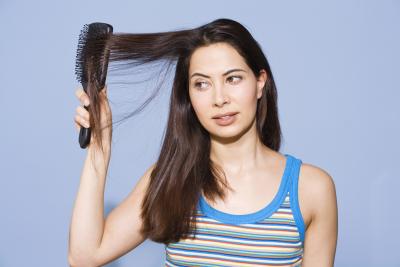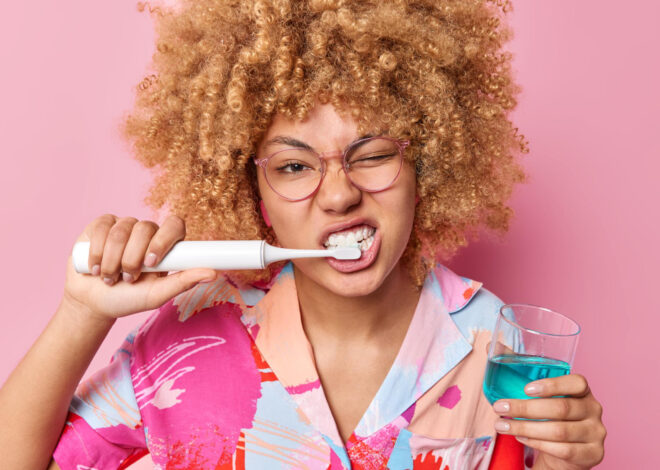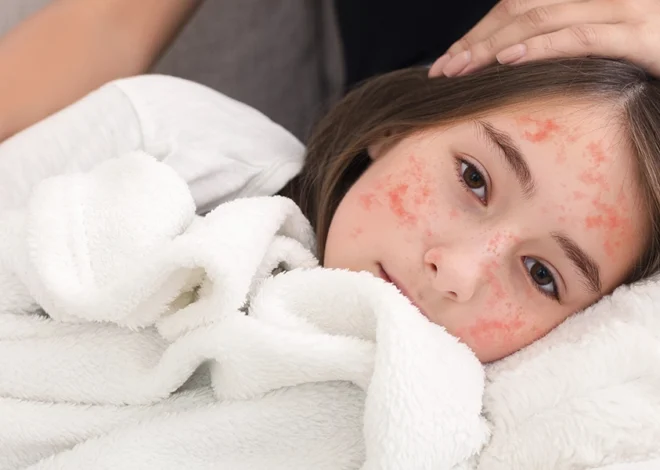What you eat plays an important role in laying down a healthy foundation for hair growth. In addition to patience, common sense and general awareness of healthy habits, you’ll need a lifelong commitment to eating a well-balanced diet to maintain healthy hair. Choose the right foods to get the nutrients necessary to have healthy hair growth.
Types of Nutrients Needed to Grow Hair
Hair grows approximately 1/4 to 1/2 inch every month. A well-balanced diet that includes plenty of growth-promoting protein, iron, vitamins and other minerals can make a difference in your hair growth and over-all well-being.
How Nutrients Help Hair Grow
You’ll need omega-3 fatty acids, vitamins A, B, C and E, and iron and zinc to help your hair grow. Foods rich in omega-3 fatty acids support a healthy scalp. If you lack omega-3 fatty acids, your scalp can become dry and your hair will be dull. Vitamins A and C help the body produce sebum, an oily substance secreted by your hair follicles that acts as your body’s natural hair conditioner, according to WebMD. Foods rich in B vitamins promote healthy hair by creating red blood cells, which carry oxygen to the scalp, follicles and growing hair. Vitamin E increases oxygen uptake to improve circulation to the scalp, while zinc stimulates hair growth by enhancing immune function, tissue growth and repair.
Foods Rich in Omega-3 Fatty Acids
Fish, such as salmon, tuna and halibut, contain high quantities of omega-3 fatty acids; other seafoods including algae and krill, some plants and nut oils are also rich in these nutrients. If you’re a vegetarian, you can include 1 or 2 tbsp. of ground flaxseed in your daily diet.
Foods Rich in Vitamins A, B, C and E
Two types of vitamin A exist — preformed and provitamin A. Preformed vitamin A comes from animal products, such as chicken and beef liver, whole milk, and some fortified food products like egg substitutes and cheese. Provitamin A comes from plants in the form of beta-carotene, alpha-carotene and beta-cryptoxanthin. Sources of provitamin A include carrots, spinach, kale, apricot, mango, papaya, tomatoes, peaches, sweet peppers, peas and oatmeal. You can find vitamin B in peas, carrots, cauliflower, soybeans, nutritional yeast, bran, nuts and eggs. Brewer’s yeast, brown rice, green peas, lentils and oats contain biotin or vitamin B7 complex. Present mostly in citrus fruits such as oranges and lemons, vitamin C is also found in broccoli, tomatoes, peppers and potatoes. Vitamin E-rich foods include wheat gum oil, soybeans, kiwi, spinach, tomatoes and almonds.
Foods Rich in Iron and Zinc
WebMD’s top-10 food sources of iron are red meat; egg yolks; dark green leafy vegetables such as spinach and collard greens; dried fruits such as prunes and raisins; breakfast cereals and grains; mollusks such as oysters, clams and scallops; turkey and chicken giblets; beans such as lentils, chickpeas and soybeans; liver and artichokes. You can find zinc in oysters, beef shanks, crab, pork, cereals, chicken and baked beans.
Considerations
If you’re taking vitamin and mineral supplements, don’t take them more often than you have to, especially if your diet already supplies sufficient quantities of vitamins and minerals. Sometimes, too much of a good thing can cause negative outcomes. For example, too much iron can have a toxic effect that can cause cell death, says Eliezer Rachmilewitz, MD, of the Edith Wolfson Medical Center, Holon, Israel. On the other hand, too much zinc may cause copper deficiency, which in turn can actually cause hair loss.





